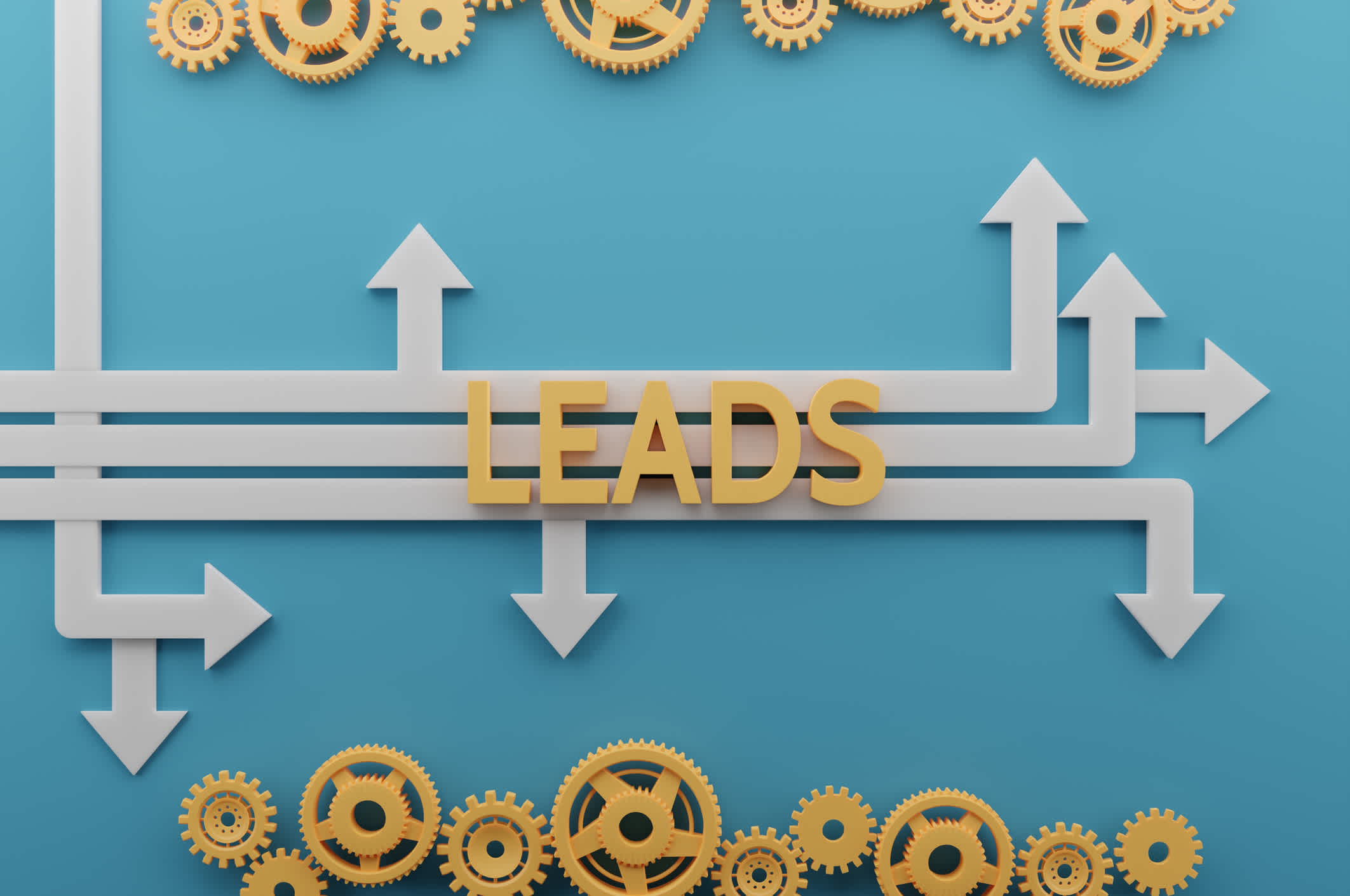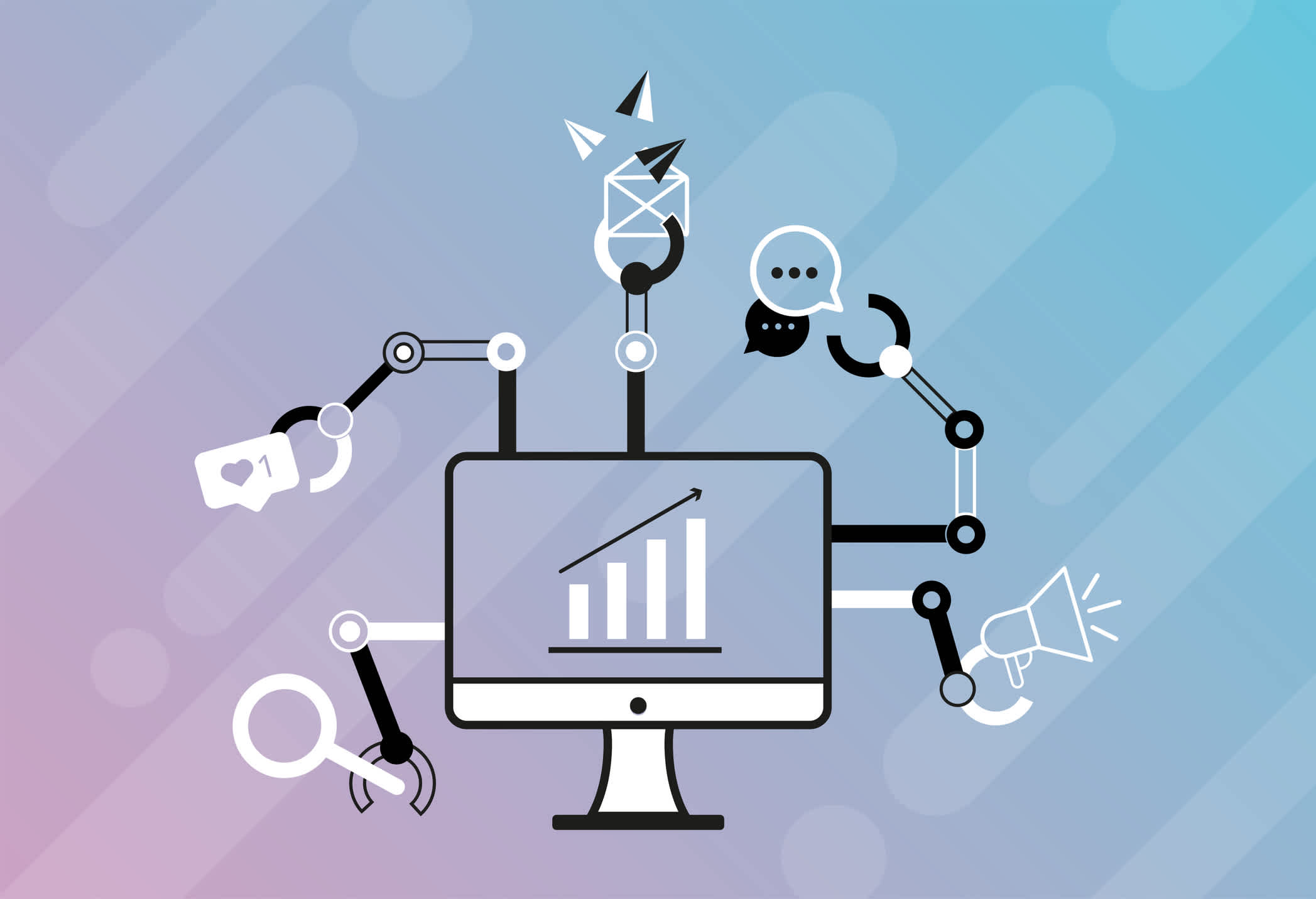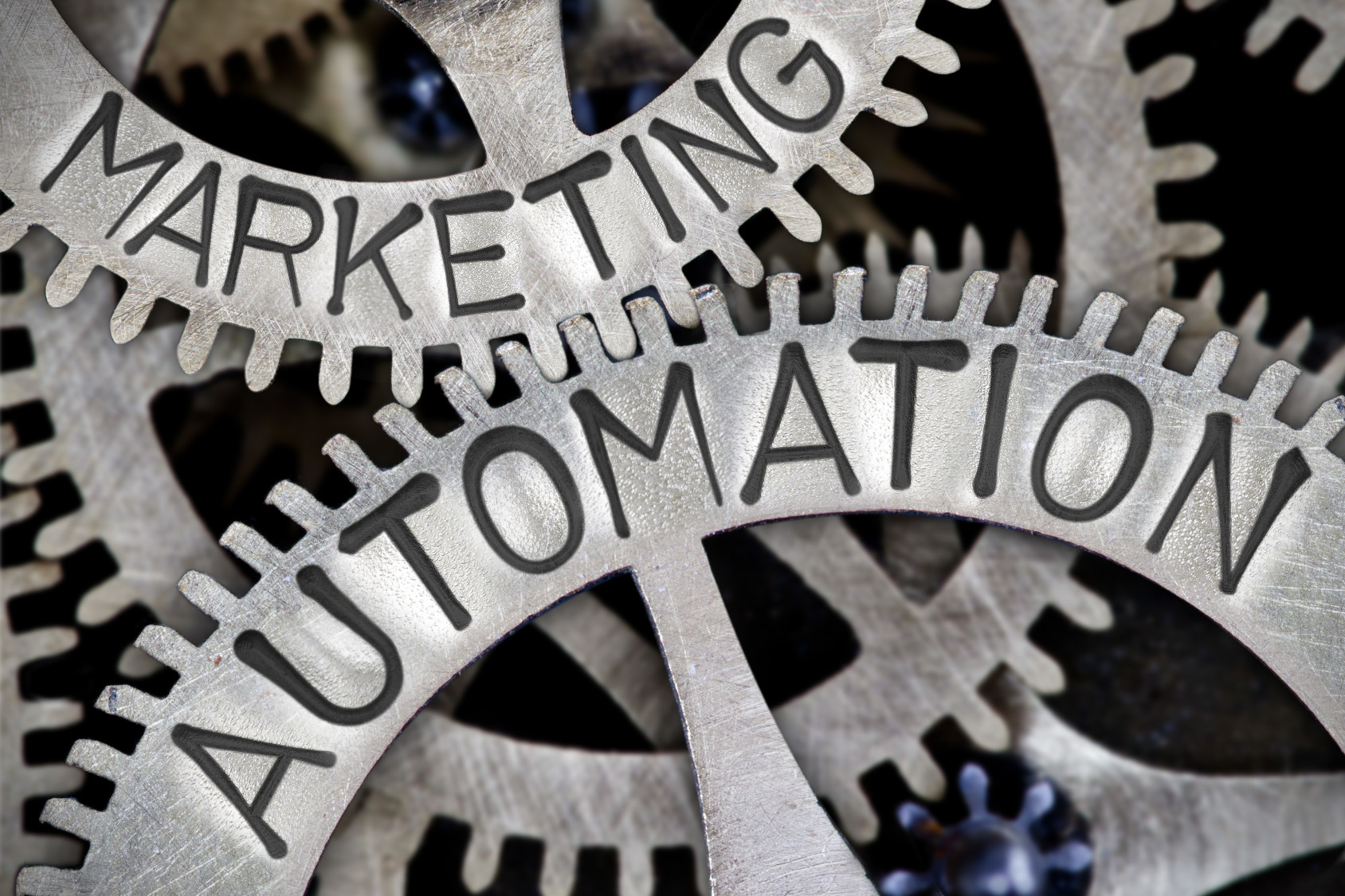//
Jun 14, 2023
Why Your Business Needs Marketing Automation
In today's fast-paced digital landscape, B2B marketing automation has emerged as a game-changer for businesses seeking to streamline their processes and drive growth.
By leveraging the power of automation, businesses can , personalize customer journeys, align sales and marketing efforts, optimize campaigns, and track ROI. In this blog, we will delve into the world of B2B marketing automation and explore how it can unleash efficiency, driving substantial growth and return on investment (ROI) for businesses.
Understanding The Need for Marketing Automation
Unlike B2C marketing automation, which focuses on individual consumers, B2B marketing automation caters specifically to the complex sales cycles and multiple stakeholders involved in B2B transactions.
Let's consider a hypothetical software company. They specialize in enterprise-level customer relationship management (CRM) solutions. In the B2B context, the sales cycle for such a product is typically complex, involving multiple stakeholders within the purchasing organization.
In this scenario, the marketing automation platform plays a crucial role in addressing the intricacies of the sales cycle. Here's how it caters to complex sales cycles and multiple stakeholders:
Lead Nurturing and Personalization
The marketing automation platform enables the software company to nurture leads throughout the lengthy sales cycle. As prospects engage with various marketing touchpoints, such as downloading whitepapers, attending webinars, or requesting product demos, the automation system tracks their interactions.
It then tailors personalized content and communication based on their specific needs, roles, and interests. This personalization helps maintain engagement and builds trust with the various stakeholders involved in the decision-making process.
Account-Based Marketing (ABM) Approach
B2B marketing automation allows the software company to adopt an account-based marketing strategy, which aligns marketing and sales efforts toward targeting specific key accounts. With multiple stakeholders involved in the buying process, the automation platform helps identify and segment key accounts, enabling the company to deliver targeted messaging and customized campaigns to each stakeholder.
By personalizing the content and nurturing relationships at the account level, the software company can effectively address the needs and preferences of different stakeholders, increasing the chances of conversion.
Lead Scoring and Qualification
Given the complexity of , it's crucial to prioritize leads based on their readiness to make a purchasing decision. The marketing automation platform employs lead scoring mechanisms that evaluate the engagement level, demographics, firmographics, and other relevant factors of each lead.
By assigning scores to leads, the platform helps the sales team identify and focus on the most qualified prospects, ensuring that valuable time and resources are directed toward leads with the highest potential for conversion.
Sales Enablement and Content Management
Marketing automation platforms often integrate with content management systems and customer relationship management (CRM) platforms. This integration ensures seamless sharing of information between marketing and sales teams.
Marketing teams can create and manage a repository of content such as case studies, product sheets, and demo videos within the automation platform. The sales team can then access and leverage this content during their interactions with different stakeholders, tailoring their conversations to the specific needs and pain points of each stakeholder.
You can't have inbound marketing without a powerful CRM to back it up!
Not 100% on what a CRM can do for your business? Watermark is offering free self-serve training videos to guide you on how a CRM can enhance your sales and marketing teams.
Analytics and Reporting
B2B automation can provide comprehensive analytics and reporting capabilities, allowing the software company to gain insights into the effectiveness of its marketing efforts at various stages of the sales cycle.
By tracking metrics such as engagement rates, conversion rates, and sales attribution, the company can measure the impact of its marketing campaigns on the progression of the sales cycle and identify areas for improvement. The analytics and reporting tools , optimize its marketing strategies, and ultimately drive better results within the complex B2B sales environment.
By leveraging these capabilities, the software company can effectively engage with stakeholders, address their unique needs, and navigate the intricate B2B sales process, leading to increased conversion rates and successful outcomes.
Automate Your Lead Generation and Nurturing

One of the primary benefits of B2B marketing automation is its ability to streamline lead generation and nurturing processes. Traditionally, businesses relied on manual efforts to capture leads through various channels such as website forms, events, and content downloads. However, manual lead management can be time-consuming and prone to human error.
Automate Your Lead Capture
With marketing automation, businesses can implement automated lead capture processes that seamlessly integrate with their website and other lead generation channels. Automation tools can instantly capture and categorize leads based on predefined criteria such as job title, company size, or industry. This automation eliminates the need for manual data entry and ensures that every lead is noticed.
Nurture Your Leads
Once leads are captured, marketing automation facilitates automated lead nurturing. Instead of manually following up with each lead individually, businesses can create personalized and automated email sequences that nurture leads based on their interests, engagement level, and stage in the buying process. These sequences can be triggered based on specific actions taken by the lead, such as downloading a whitepaper or attending a webinar.
Segment Your Leads
Lastly, B2B marketing automation enables businesses to segment their leads automatically. By categorizing leads based on specific criteria, such as industry, geographic location, or product interest, businesses can tailor their messaging and content to resonate with different segments. This personalization enhances the relevance of marketing communications and improves the overall customer experience, leading to higher engagement and conversion rates.
Automation Enhances Sales and Marketing Alignment

One of the common challenges in many organizations is the lack of . Miscommunication, conflicting goals, and a lack of visibility into each other's activities can lead to inefficiencies, missed opportunities, and ultimately, revenue loss.
Marketing automation plays a crucial role in bridging the gap between sales and marketing, fostering enhanced alignment and collaboration.
Automation Aligns Sales and Marketing Hand-off
B2B marketing automation improves sales and marketing alignment through automated lead handoff processes. When a lead reaches a certain threshold or meets specific criteria, the automation platform can automatically notify the sales team, ensuring that they receive timely and relevant information about the lead.
This eliminates the manual effort of manually forwarding leads or relying on sporadic communication, ensuring sales teams can quickly engage with leads and capitalize on hot opportunities.
Automation Keeps Track of Leads Through Their Journey
Moreover, marketing automation provides both sales and marketing teams with visibility into the progress and status of leads. Through shared dashboards and reports, teams can track the journey of leads, from their initial engagement with marketing campaigns to their interactions with sales representatives.
This transparency enables better communication, collaboration, and a deeper understanding of the customer's journey, facilitating more effective sales conversations and nurturing strategies.
Additionally, automation platforms offer lead management features that allow sales and marketing teams to effectively track and manage leads throughout the entire sales cycle. These tools provide a centralized database where both teams can access lead information, update lead status, add notes, and view communication history.
This eliminates the need for multiple spreadsheets or disjointed systems, streamlining the lead management process and ensuring that both teams have real-time access to the most up-to-date information.
Automation Helps Teams Understand A Lead’s Behavior
B2B marketing automation also supports sales enablement by providing sales teams with valuable insights and resources. Through the automation platform, sales representatives can access lead profiles, engagement history, and behavioral data.
This information equips them with a deeper understanding of the lead's interests, pain points, and interactions with marketing materials. Armed with this knowledge, sales teams can tailor their conversations and proposals to resonate with the lead, increasing the chances of closing the deal.
Automation Fosters An Environment of Collaboration
Furthermore, marketing automation platforms facilitate effective communication and collaboration between sales and marketing teams. Features such as lead tagging, lead assignment rules, and internal messaging systems allow teams to communicate and coordinate efforts seamlessly.
For example, if a sales representative needs specific marketing collateral or has feedback on a campaign, they can easily communicate their needs directly within the automation platform, ensuring that marketing teams can respond promptly and provide the necessary support.
Improve ROI Through Automatic Analytics and Custom Reporting

Another key advantage of marketing automation is its ability to improve return on investment (ROI) through robust analytics and reporting capabilities. By harnessing data-driven insights, businesses can make informed decisions, optimize their marketing strategies, and allocate resources more effectively.
Custom-built Dashboards
B2B marketing automation platforms offer comprehensive analytics dashboards that provide a wealth of information about the performance of marketing campaigns. Marketers can track key metrics such as website traffic, , email open and click-through rates, form submissions, and more.
These metrics provide valuable insights into the effectiveness of various marketing initiatives, helping businesses understand which channels, messages, and campaigns are generating the best results.
In addition to tracking standard metrics, marketing automation allows for advanced attribution modeling. With attribution modeling, businesses can identify the touchpoints and interactions that contribute most to lead conversion and revenue generation.
By analyzing the entire customer journey, from the initial touchpoint to the final sale, marketers can understand the impact of each marketing activity and allocate resources accordingly. This insight helps optimize marketing spend, ensuring that resources are focused on the most impactful strategies and tactics.
Never Miss An Insight with Scheduled Reports
Marketing automation platforms also provide detailed reporting capabilities that allow marketers to generate comprehensive reports tailored to their specific needs. These reports can be scheduled or generated on-demand, providing real-time visibility into campaign performance, lead quality, revenue attribution, and other essential metrics.
By regularly reviewing these reports, businesses can identify trends, uncover patterns, and gain a deeper understanding of the factors driving success or hindering performance.
Encourage An Environment of Testing
Another powerful aspect of marketing automation is the ability to perform . Marketers can create variations of their campaigns, landing pages, or emails and test them against each other to determine which version performs better.
Through systematic testing and analysis, businesses can fine-tune their marketing strategies, optimize conversion rates, and enhance overall campaign effectiveness. A/B testing allows marketers to make data-driven decisions and continually refine their approach, ensuring continuous improvement and maximum ROI.
Automation and CRM Tools Are Often Integrated
B2B marketing automation platforms often are integrated with , creating a seamless flow of data between marketing and sales. This integration enables marketers to track the revenue generated from marketing efforts, providing a comprehensive view of ROI. By aligning marketing data with sales data, businesses can measure the impact of marketing campaigns on revenue generation, customer acquisition costs, customer lifetime value, and other crucial financial metrics.
Leveraging Marketing Automation for Competitive Advantage

B2B marketing automation offers a plethora of benefits for businesses seeking to drive growth and achieve a strong ROI through increased efficiency and effectiveness. By streamlining lead generation and nurturing, businesses can identify and prioritize high-quality leads, leading to higher conversion rates and shorter sales cycles. Personalized customer journeys create tailored experiences that resonate with prospects and customers, driving engagement and fostering long-term loyalty.
Moreover, marketing automation enhances sales and marketing alignment by facilitating seamless lead handoff and providing both teams with visibility into the lead status and progress. This collaboration leads to improved communication, better targeting, and ultimately, increased revenue generation.
Campaign management becomes more efficient and effective with automation, as marketers can leverage automated workflows, drip campaigns, and A/B testing to optimize their strategies. By automating repetitive tasks and testing different approaches, businesses can identify the most successful tactics and drive better campaign performance.
One of the most significant advantages of B2B marketing automation is its ability to improve ROI through analytics and reporting. Automation platforms provide valuable insights into the performance of marketing campaigns, allowing businesses to make data-driven decisions. By measuring key metrics and analyzing the impact of marketing activities on revenue, businesses can identify areas for improvement and allocate resources more effectively, ensuring a higher return on investment.
Marketing automation has become a vital tool for businesses looking to drive growth and maximize their ROI. By leveraging automation to streamline processes, nurture leads, personalize customer experiences, align sales and marketing efforts, optimize campaigns, and track performance, businesses can unlock efficiency and effectiveness in their marketing strategies.
Implementing automation empowers businesses to make data-driven decisions, improve collaboration, and ultimately achieve substantial growth and a strong return on investment. Embracing this powerful technology is key to staying competitive in the dynamic B2B landscape and unleashing the true potential of your marketing efforts.
Need help with marketing automation? Watermark is here to help. Schedule a Call with Our Digital Sales Consultant today for a free discovery workshop.
About Watermark
As a in Denver, we strive to captivate your audience and elevate your brand through Smart Design and Creative Solutions. We believe marketing is a collaborative effort, achieved by practicing agility and working cohesively with your team, not for it. Using data-driven solutions, we implement the best practices necessary to help your business exceed KPIs.







